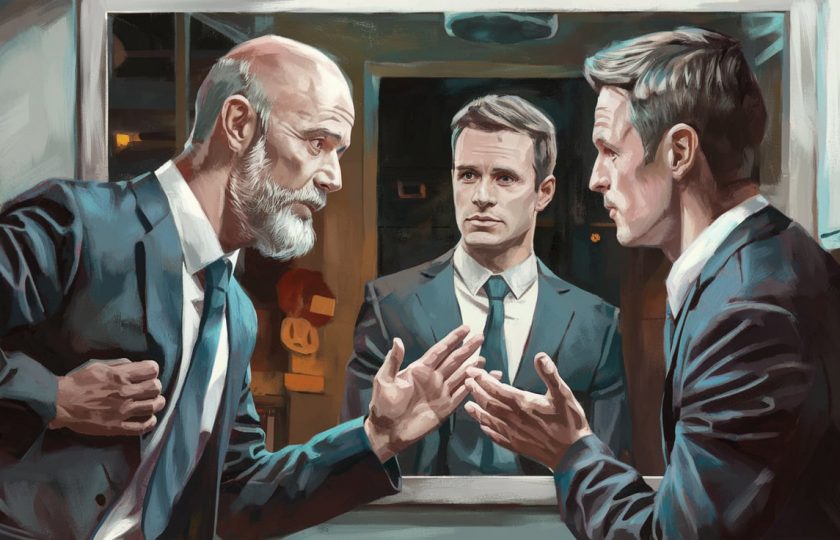
Taking Off the Mask
Each of us grows up with our own set of traumas—some heavy, some light—but all significant in shaping who we become. Trauma, in its many forms, is an intrinsic part of the human experience. It’s not the trauma itself that defines us, but how we handle it.
For years, I wore a mask of a people-pleaser. Constantly seeking approval, I believed that by making others happy, I could hide the pain and insecurity rooted in past wounds. This mask was my shield, a persona developed to cope with the unresolved emotions I wasn’t ready to face. I thought that by accommodating others and minimizing my own needs, I could protect myself from further harm. But in reality, it only distanced me from genuine connections and healing.
Trauma influences the personas we adopt. Some of us become people-pleasers, like I did, striving to fill a void through external validation. Others might develop traits of narcissism, projecting an image of superiority and invulnerability, often targeting genuine and strong individuals to tear down—a coping mechanism to assert control when everything else feels uncertain.
In my past personal relationships and work experiences, I encountered such dynamics in their most vivid and challenging forms. As a people-pleaser, I was naturally drawn to individuals with magnetic charisma and apparent self-assurance—people who exuded a confidence that was both captivating and intoxicating. They seemed to light up every room they entered, effortlessly commanding attention and admiration. It was hard not to be enamored by those who appeared so vibrant and full of life.
However, as the layers began to peel away, I started to notice inconsistencies between words and actions. Beneath that shining exterior were people grappling with deep-seated insecurities and unresolved trauma. Their confidence often masked fragile egos that required constant validation. My tendency to please made me an easy target for their subtle comments that evolved into overt criticisms. What once felt like playful teasing became a persistent effort to undermine my self-esteem.
These individuals had a way of turning every situation back onto themselves, dismissing my feelings and experiences as trivial or misguided. If I shared an accomplishment or joy, they would either downplay it or quickly shift the focus back to their own achievements. There were moments when I felt more like an audience member than a participant, expected to applaud but never to shine myself. My people-pleasing nature compelled me to accept this imbalance, fearing that asserting my own needs might disrupt the relationship or workplace harmony.
Their method of coping involved elevating themselves at the expense of others, and I became a primary target. They would highlight my perceived flaws in private and public settings, often cloaked in the guise of “helping me improve.” These interactions left me feeling small and questioning my own worth. I started to internalize their criticisms, believing that if I just tried harder or pleased them more, things would get better.
Manipulation became a common thread in our interactions. They would use guilt and deflection to avoid taking responsibility for hurtful actions. If I tried to address an issue, the conversation would twist until I found myself apologizing for things I hadn’t done. My inclination to keep the peace and avoid conflict meant I often suppressed my own feelings, further entrenching me in the cycle.
These relationships took a toll on my mental and emotional well-being. I began to doubt my perceptions and intuition, constantly second-guessing myself in hopes of maintaining harmony. The vibrant, self-assured person I once was started to fade, replaced by someone who walked on eggshells and neglected their own needs in favor of others’. My mask of people-pleasing had become a prison.
It was a painful experience, one that left me questioning my own worth and identity. Recognizing the toxic patterns was the first step toward healing. I came to understand that their actions were a reflection of their own unresolved issues, not a measure of my value. This realization didn’t excuse the behavior, but it allowed me to detach and prioritize my well-being.
Breaking free from those dynamics was both challenging and liberating. It required me to confront uncomfortable truths and shed the mask I had worn for so long. Rebuilding the confidence that had been eroded over time meant embracing my authentic self, acknowledging my own needs, and understanding that it’s okay not to please everyone.
Reflecting on this journey, I acknowledge that while trauma can shape us, it doesn’t justify harming others or ourselves. We all carry wounds, but it’s how we choose to heal and grow that defines our character. Moving forward, I strive to surround myself with genuine connections that uplift rather than diminish, embracing authenticity and compassion both for myself and others.
But here’s what I’ve learned: we don’t have to remain prisoners of our past. Taking off the mask is a courageous act of vulnerability. It means confronting our traumas head-on, acknowledging their impact, and choosing to heal. It’s about embracing authenticity, both in ourselves and in our relationships with others.
Healing isn’t linear, and it’s not easy. It requires self-compassion, patience, and often professional support. But as we begin to unpack our traumas, we also start to dismantle the personas we’ve built around them. We learn to set healthy boundaries, recognize toxic patterns, and prioritize our own well-being without the incessant need to please others.
Trauma may have shaped us, but it doesn’t have to define our future. By taking off the mask, we allow ourselves to experience the fullness of life—with all its pains and joys—more authentically. We open the door to genuine connections and personal growth.
If you find yourself hiding behind a mask, whether it’s of a people-pleaser or any other facade, I encourage you to take a brave step toward vulnerability. Seek support, share your story, and allow yourself the freedom to heal. Remember, it’s through addressing our traumas and embracing our true selves that we reclaim our strength and truly become who we’re meant to be.


